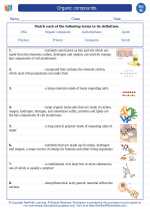Nucleic Acids
Nucleic acids are macromolecules that store and transmit genetic information in living organisms. There are two main types of nucleic acids: deoxyribonucleic acid (DNA) and ribonucleic acid (RNA).
Structure of Nucleic Acids
DNA and RNA are composed of nucleotides, which consist of a sugar molecule, a phosphate group, and a nitrogenous base. The sugar in DNA is deoxyribose, while in RNA it is ribose. The nitrogenous bases in DNA are adenine (A), thymine (T), cytosine (C), and guanine (G). In RNA, thymine is replaced by uracil (U).
Function of Nucleic Acids
DNA contains the genetic instructions for the development, functioning, and reproduction of all known living organisms and many viruses. RNA plays a crucial role in protein synthesis, gene regulation, and the transmission of genetic information from DNA to proteins.
Study Guide
.◂Science Worksheets and Study Guides Eighth Grade. Organic compounds
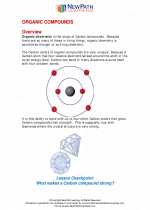
 Worksheet/Answer key
Worksheet/Answer key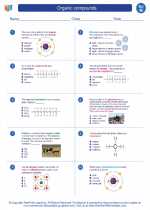
 Worksheet/Answer key
Worksheet/Answer key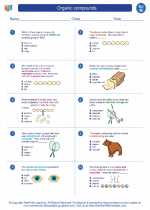
 Worksheet/Answer key
Worksheet/Answer key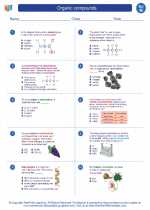
 Vocabulary/Answer key
Vocabulary/Answer key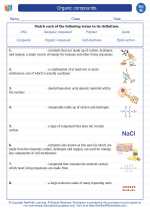
 Vocabulary/Answer key
Vocabulary/Answer key